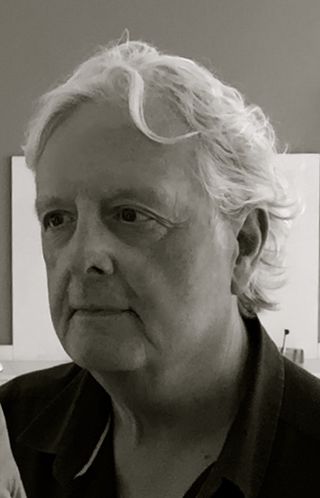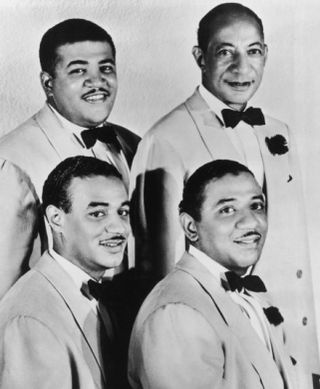
"Jumpin' Jack Flash" is a song by the English rock band the Rolling Stones, released as a non-album single in 1968. Called "supernatural Delta blues by way of Swinging London" by Rolling Stone magazine, the song was perceived by some as the band's return to their blues roots after the baroque pop and psychedelia heard on their preceding albums Aftermath (1966), Between the Buttons (1967) and especially Their Satanic Majesties Request (1967). One of the group's most popular and recognisable songs, it has been featured in films and covered by numerous performers, notably Thelma Houston, Aretha Franklin, Tina Turner, Peter Frampton, Johnny Winter, Leon Russell and Alex Chilton. To date, it is the band's most-performed song; they have played it over 1,100 times in concert.

"That'll Be the Day" is a song written by Buddy Holly and Jerry Allison. It was first recorded by Buddy Holly and the Three Tunes in 1956 and was re-recorded in 1957 by Holly and his new band, the Crickets. The 1957 recording achieved widespread success. Holly's producer, Norman Petty, was credited as a co-writer, although he did not contribute to the composition.

The Fortunes are an English harmony beat group. Formed in Birmingham, the Fortunes first came to prominence and international acclaim in 1965, when "You've Got Your Troubles" broke into the US, Canadian, and UK Top 10s. Afterwards, they had a succession of hits including "Here It Comes Again" and "Here Comes That Rainy Day Feeling Again"; continuing into the 1970s with more globally successful releases such as "Storm in a Teacup" and "Freedom Come, Freedom Go".

Marmalade are a Scottish pop rock band originating from the east end of Glasgow, originally formed in 1961 as The Gaylords, and then later billed as Dean Ford and the Gaylords, recording four singles for Columbia (EMI). In 1966 they changed the band's name to The Marmalade and were credited as such on all of their subsequent recorded releases with CBS Records and Decca Records until 1972. Their greatest chart success was between 1968 and 1972, placing ten songs on the UK Singles Chart, and many overseas territories, including international hits "Reflections of My Life", which reached No. 10 on the US Billboard Hot 100 Chart and No. 3 on the UK chart in January 1970, and "Ob-La-Di, Ob-La-Da", which topped the UK chart in January 1969, the group becoming the first-ever Scottish artist to top that chart.
Unit 4 + 2 were a British pop band, who had a number one hit on the UK Singles Chart in 1965 with the song "Concrete and Clay". The track topped the UK chart for one week.

Faster Than the Speed of Night is the fifth studio album by Welsh singer Bonnie Tyler. It was released in Europe on 8 April 1983 and later that year in the US through Columbia Records. Tyler had changed musical direction and soon after began working with Jim Steinman, who produced the album and wrote its most successful single "Total Eclipse of the Heart".

Junior Campbell is a Scottish composer, songwriter and musician. He was a founding member, lead guitarist, pianist, and singer with the Scottish band Marmalade and co-wrote and produced some of their biggest successes, including "Reflections of My Life", "I See the Rain" and "Rainbow".

"Candle in the Wind" is a threnody written by English musician Elton John and songwriter Bernie Taupin, and performed by John. It was originally written in 1973, in honour of Marilyn Monroe, who had died 11 years earlier.
"On the Atchison, Topeka and the Santa Fe" is a popular song written by Harry Warren with lyrics by Johnny Mercer. The song was published in 1944, spanned the hit chart in mid-1945, and won the 1946 Academy Award for Best Original Song, the first win for Mercer.
Lieutenant Pigeon were an English novelty musical group popular in the early 1970s, originating in Coventry.
The Stargazers were a British vocal group, jointly founded in 1949 by Cliff Adams and Ronnie Milne. Other original members were Marie Benson, Fred Datchler and Dick James.

Jeri Southern was an American jazz singer and pianist.

"It's Not Unusual" is a song written by Les Reed and Gordon Mills, first recorded by a then-unknown Tom Jones, after it had first been offered to Sandie Shaw. He intended it as a demo for her, but when she heard it she was so impressed with his delivery that she recommended he sing it instead.
The Johnston Brothers were a vocal group who had a No. 1 hit in the UK Singles Chart in 1955 with their cover version of "Hernando's Hideaway".
Michael "Jimmy" James is a British-Jamaican soul singer, known for songs like "Come to Me Softly", "Now Is the Time" and "I'll Go Where Your Music Takes Me". Based in Britain, he has performed as the lead singer of Jimmy James and the Vagabonds since the mid-1960s.
The Casuals were a British pop group from Lincoln, Lincolnshire, England. They are best known for their 1968 No. 2 UK hit song, "Jesamine".

"Reflections of My Life" was a 1969/1970 hit single for the Scottish band, Marmalade. It was written by their lead guitarist Junior Campbell and singer Dean Ford. Released in late 1969, it was the band's first release on Decca following an earlier spell at CBS.
The Ian Campbell Folk Group were one of the most popular and respected folk groups of the British folk revival of the 1960s. The group made many appearances on radio, television, and at national and international venues and festivals. They performed a mixture of British traditional folk music and new material, including compositions by Campbell. Much of their popularity flowed from the variety of their performance which included a mixture of solos, group vocals and instrumentals.

The Mills Brothers, sometimes billed "The Four Mills Brothers" and originally known as "Four Boys and a Guitar", were an American jazz and traditional pop vocal quartet who made more than 2,000 recordings that sold more than 50 million copies and garnered at least three dozen gold records.
"Sweet Illusion" is a song written and recorded by Junior Campbell in April 1973 as a follow-up single to "Hallelujah Freedom", which had seen success in the UK Singles Chart at the end of the previous year.










